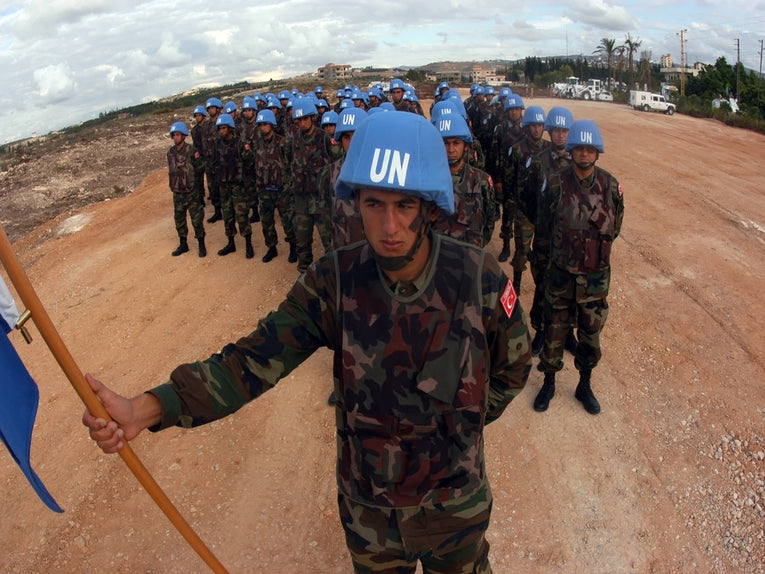In 2002, following a request by the Ukrainian Peacekeepers Association, the United Nations General Assembly designated 29th May as the International Day for United Nations Peacekeepers.
The day was first celebrated in 2003 and the date marks the anniversary of the creation of the first ever UN peacekeeping mission, the United Nations Truce Supervision Organisation (UNTSO) that was established in 1948 following the Arab-Israeli War.
The day has two purposes:
- to honour the memories of the UN peacekeepers who have lost their lives in the cause of peace;
- to pay tribute to the men and women who have served and continue to serve in UN peacekeeping operations with dedication, professionalism and courage.
Since that first international peacekeeping mission in 1948, more than 3,500 military, police or civilian personnel from some 120 countries have lost their lives working on behalf of the United Nations in the service of peace. These deaths have been as a result of violence, accident or disease.
Every year on 29th May at the UN Headquarters in New York, the Secretary-General presides over a wreath-laying ceremony to honour all the peacemakers who lost their lives while serving under the UN flag. In addition, the Dag Hammarskà ¶ld Medal is posthumously awarded to the peacekeepers who have died while serving in the cause of peace during the preceding year.
Similar wreath-laying ceremonies take place around the world to coincide with special events and conferences to mark the day.
Since 1948 the role of UN peacekeeping has expanded and continues to do so. As of February 2013 the UN peacekeeping force consisted of:
· 81,615 serving troops and military observers;
· 12,478 police personnel;
· 5,090 international civilian personnel;
· 11,701 local civilian staff
· 2,099 UN volunteers.
Military and police personnel come from 114 different countries and it is important to remember that the UN has no military force of its own and relies solely on contributions from member states.
Since peacekeeping operations began in 1948, the UN has deployed personnel 67 times, with 54 with of these operations since 1988. Over the years hundreds of thousands of military personnel, along with tens of thousands of police and other civilians from more than 120 countries have participated.
Initially the peacekeeping operations were primarily limited to maintaining ceasefires and stabilising situations. They consisted of unarmed military observers and lightly-armed troops who provided crucial support for political efforts to resolve conflict by peaceful means.
The earliest UN peacekeeping operation that employed armed personnel was during the Suez Crisis in 1956, but the first large-scale military mission was the UN Operation in the Congo that was launched in 1960. At it peak nearly 20,000 military personnel were deployed. This operation demonstrated the risks involved in trying to bring stability to a war-torn region.
250 UN personnel died while serving on that mission, including the Swedish UN Secretary-General Dag Hammarskà ¶ld, who was killed in a plane crash while he was in the region endeavouring to mediate between different warring factions.
Since the ending of the Cold War the strategic context of UN peacekeeping has seen a dramatic change. There has been a shift from traditional missions usually involving military personnel to include a multitude of other tasks, such as providing:
· administrators
· economists
· police officers
· legal experts
· mine clearance experts
· electoral observers
· human rights monitors
· civil affairs and governance specialists
· humanitarian workers
· communications and public information experts.
In the 21st century UN Peacekeeping has been stretched as never before. The UN is increasingly being called upon to operate in uncertain environments in volatile political contexts.
This has all led to a general increase in expectations and ultimately to a situation where UN peacekeeping no longer had the capacity to deliver. As a result a period of reassessment became necessary.
It is clear that the role of the UN peacekeeper is far from over and that International Day of United Nations Peacekeepers is a fitting time to pay tribute to those men and women who have served and continue to serve the mission of world peace and to remember with gratitude those who have lost their lives in this endeavour.










